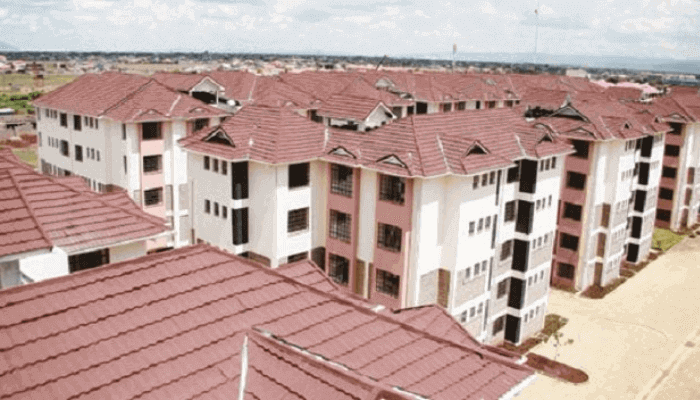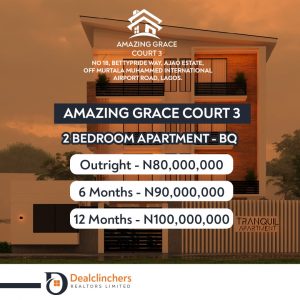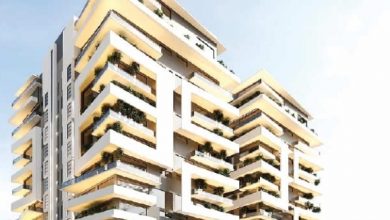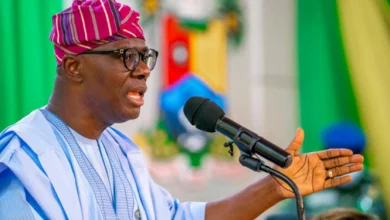Nigeria needs ₦5.5trn, 550,000 units annually to close growing housing gap | Prestige Real Estate News


Experts at the Africa International Housing Show in Abuja have said that Nigeria needs N5.5 trillion to close its housing gap estimated at 20 million units.
The experts added that the country also needs to build about 550, 000 housing units annually for the next decade to be able to bridge the gap.
The ₦5.5 trillion, according to the experts, is the value of the opportunity available to investors in the country’s real estate market
Nigeria is grappling with a significant housing challenge as its population, currently estimated at 220 million, grows at an annual rate of 2.5 percent.
Similarly, the country is urbanising rapidly and the United Nations projects that unless something is done urgently, about 60 percent of the country’s population will be living in the city by 2030.
Ahmed Dangiwa, the Minister of Housing and Urban Development, in his keynote address Housing Show emphasized the urgent need for substantial investment and strategic planning to address this housing deficit.

He revealed that while the government’s plan to deliver 50,000 units is ambitious, it pales into insignificance when compared to the 550,000 units required annually.
He sees this gap as both a social necessity and a business opportunity, encouraging investors and partners to participate through Public-Private Partnerships (PPPs) and collaborations with housing development finance institutions.
He disclosed that the government is making efforts to address the country’s housing challenge.
“The Ministry has adopted a Demand Driven Approach for its Housing Delivery Strategy to avoid issues of abandoned or unsold buildings.
“Recently, an Online Housing Portal was launched to streamline the process of acquiring homes, recording over 28,000 applications since its inception.
“This initiative underscores the importance of data and a needs-based market-driven approach to housing delivery”, he said.

Dangiwa also spoke about the Ministry’s Urban Renewal and Slum Upgrade Programme, with projects ongoing in 26 sites nationwide, providing essential services such as water supply, solar streetlights, and road rehabilitation. Partnerships are sought to scale this component, aiming to improve living conditions for millions of households.
“In alignment with President Bola Tinubu’s Renewed Hope Agenda, the Ministry is working to establish a National Social Housing Fund (NSHF) to ensure all Nigerians, including vulnerable and underprivileged groups, have access to decent accommodation.
Potential funding sources for NSHF include budget allocations, tax incentives, private sector donations, and corporate sponsorships”, he mentioned.
Dangiwa also highlighted ongoing efforts to implement a National Land Registration and Titling Programme in partnership with the World Bank.

“This initiative aims to increase land formalization from less than 10 percei to 50 percent over the next 10 years, facilitating better housing development”, Dangiwa stated.
He also called on the stakeholders, housing development institutions, and corporate organizations to submit partnership proposals, stressing the importance of finding practical solutions for those living in informal settlements and without adequate housing.
Also in his keynote address at the housing show, Pastor Matthew Ashimolowo, Chairman of the Opening Ceremonies, emphasized the urgent need to bridge Nigeria’s widening housing gap.
He cited the United Nations’ recommendation to adopt Sustainable Development Goal 11, which aims to provide high-quality, reasonably priced homes for all by 2030.
“According to the World Bank, Nigeria will need to construct around 700,000 housing units annually for the next 20 years to meet the needs of its growing population. This ambitious goal requires an investment of N59 trillion”, he stated.

Ashimolowo, a real estate investor with nearly 40 years of experience in various sectors, including agriculture, commercial, residential, and land banking, shared his insights on the theme of the conference: “Financing the Housing That We Need.”
He stressed that finance is central to housing and real estate development, describing real estate as a “financing game.” Capital is essential at both ends of the value chain—construction finance is required by developers to build housing projects, while mortgage finance drives buying and renting decisions.
He highlighted the International Finance Corporation’s (IFC) estimate that Africa’s housing deficit stands at over 97 million units, a figure expected to rise with population growth and urbanization.
“Specifically for Nigeria, the exact deficit figure remains controversial, but a recent report has unveiled the dire state of the country’s public housing system”, he said.
Ashimolowo proposed “land banking” as an effective financing strategy, wherein developers purchase land at relatively low prices, secure the title, and wait for its value to appreciate before selling at a profit.
“This strategy can generate significant funding for current and future housing projects, providing a pragmatic solution to the high cost of financing in the current environment,” he said.
He urged stakeholders to be intentional, innovative, and pragmatic about their financing strategies to address the housing deficit effectively.
He underscored the critical need for collaborative efforts and innovative solutions to tackle the housing challenges facing Nigeria and the broader African continent.
Godswill Akpabio, the Senate President, who was represented by Victor Umeh, Senator representing Anambra Central also emphasized the fundamental right to housing and the need for effective regulation to ensure construction integrity.
As the Africa International Housing Show continues, participants are encouraged to share ideas and collaborate on solutions to improve housing delivery across the continent.
- Businessday






